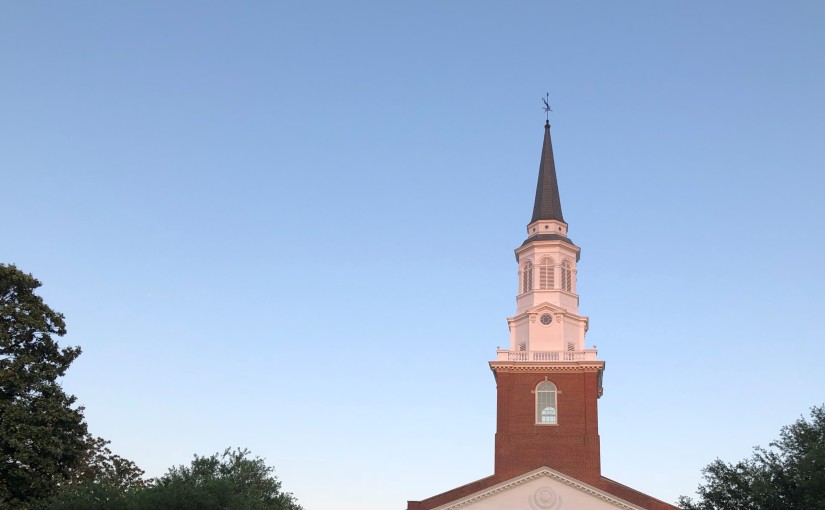*This post is part of a series on challenges I’ve faced while in seminary.
START AT THE BEGINNING or check out the PREVIOUS POST.
Not long after reaching that low point I mentioned earlier, I found myself standing on the quad at the seminary looking up at the chapel steeple and pleading with God: “Please let me stay. I came here because you called me to. Please provide a way for me to stay.”
And He did…blessing me far beyond what I asked for or deserved.
He provided a job to meet our needs…and not just a job…a family…a church.
I plan to write more about my church in the coming days, but in this post I want to emphasize just how important the church is to a seminary education. I am absolutely convinced that the only way to rightly navigate your time in seminary is to be an active member of a local church.
One of the great challenges in seminary is retaining all that you are learning. Information is flying at you so quickly that it’s difficult to file everything away for future use. That’s why you need to use the knowledge God is giving you in the context for which it was created – the local church.
My seminary “exists to glorify God by equipping students to serve the church and fulfill the Great Commission.” The knowledge we gain is not for knowledge’s sake. It’s not to pat ourselves on the back. It’s not to win arguments or brag about how much we know. It’s to “serve the church” and “fulfill the Great Commission.”
But so many seminary students are content to simply attend church.
They might object, “My church is so big. It’s hard to find a place to plug in.” But many times this is simply a cover for a misunderstanding of the value of the local church. The local church is given that we might be sanctified and grow together into the image of Christ.
You won’t learn how to teach or preach until you do it.
You won’t learn how to deal with difficult people and situations until you do it.
You won’t learn how to dream up, plan, and execute programs until you do it.
You won’t learn how to share the gospel or disciple someone until you do it.
And the local church has been given to all of us (not just seminarians!) that we might develop our gifts for the benefit of Christ’s kingdom. In this context, so far as you are open to the wisdom and correction of others, you will discover your strengths and your weaknesses – both personally and ministerially. And, seminarians, you will be able to (humbly!) pass along some of the great things you are learning to those who may never have a chance to sit in a seminary classroom – reinforcing these truths.


